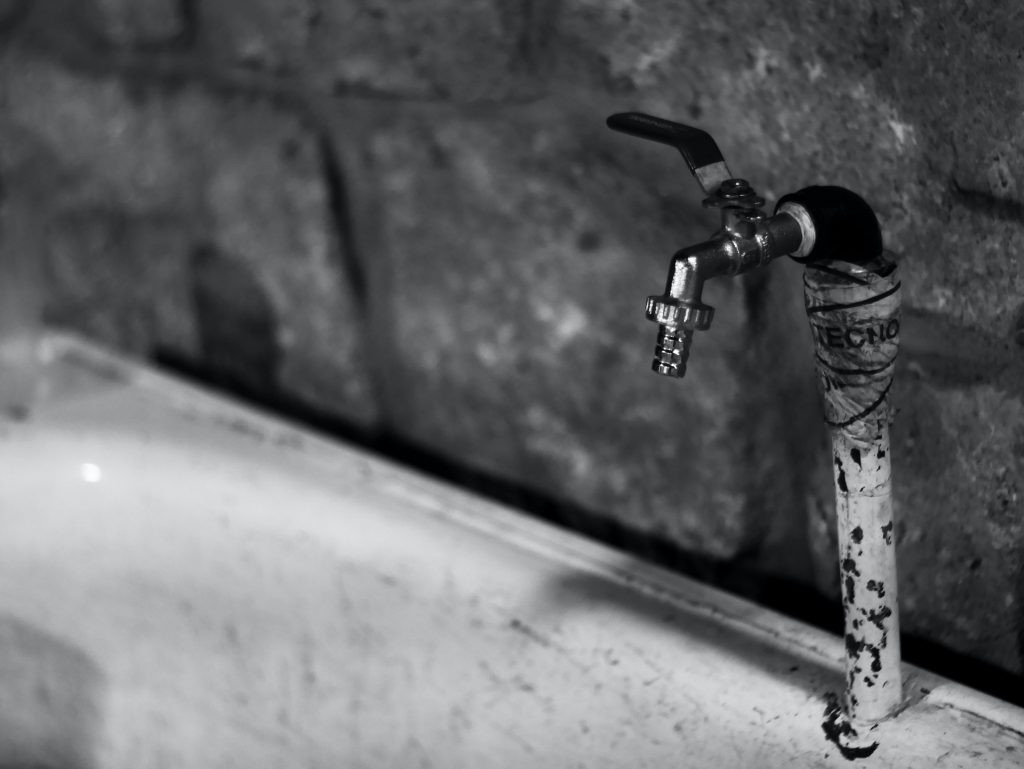Misplaced Priorities
One of my great fortunes in growing up in South Florida has been reading the Miami Herald from an early age and, thus, being exposed to the brilliant American commentator and novelist Leonard Pitts Jr. Calling Mr. Pitts a Columnist or Opinion Writer somehow seems too shallow for someone so gifted, someone who so frequently makes me think, wonder, and, yes, worry. Each time I think I’ve read his most profound piece he proves me wrong with yet another thought-provoking commentary. Candidly, I think of him more as a poet, someone whose thoughts and words deeply touch my soul while he also serves as a consciousness of our culture.
As ever, Mr. Pitts’ column this weekend proves why I so love and appreciate his Pulitzer Prize winning work. The potable water crisis in Jackson, Mississippi is a tragedy beyond comprehension but was avoidable had the real needs of its residents been a priority for local, state, and our national government. Unfortunately, as happens in places like Jackson (and Miami) all over the planet, impoverished people are too often overlooked, and their needs marginalized, as so-called leaders prioritize politics and profits over public service. Like the water in Jackson, it makes me sick.
In such a wonderful country filled with good people, we should each ask ourselves daily how we could possibly allow our political discourse to go so far astray of what’s important to our lives and what we owe to future generations that follow. By spending so much time on imagined, fictitious threats by pandering to a minority of ill-informed people, we are missing important opportunities to address the real issues of our lifetimes, including a failing American infrastructure and only the most significant threat our planet has ever faced: the man-made climate crisis that’s causing the “freakish weather” Mr. Pitts writes about this weekend.
Can you imagine the problems we collectively could solve if some would stop wasting time propagating fictitious fears about election lies, as just one for example, and went about solving real issues related to our roads, water, sewer systems, and, yes, our warming climate? Think about it. Telling a minority of Americans what they want to hear rather than the truth fills our minds and media with mind numbing trash and that is shameful. Far too many elected leaders or candidates for office this year are still propagating a lie that the 2020 election was stolen when something like 60 or so courts, many of them with judges seated by our former President himself, have ruled that our current President was legally and democratically elected. The suggestion otherwise is a colossal waste of time, but it is also a tactic that many increasingly believe threatens our very democracy, much less something so seemingly simple as ensuring that our citizens have water.
If you have not read Mr. Pitts regularly in the past, I can’t think of a better place to start than with his thoughts on “misplaced priorities” this weekend. It’s a bit about water in Jackson but more so about much deeper things that each of us must consider as we decide what our legacy will be during our lifetimes here on earth.
Good luck getting a glass of water in Jackson
When it came to making sure 150,000 people had water to drink, Mississippi had more important things to do. But then, poor and/or dark-skinned people are often taken for granted.
There is no water in Jackson, Mississippi.
Not at this writing, at least. At this writing, the nearly 150,000 residents of the state capital have been advised that even if they are able to coax some of the precious liquid from their taps — water pressure is feeble — it is unsafe for drinking, bathing, or washing dishes.
Note, please, that they were already under a boil-water order — the latest in a series. Then heavy rains and flooding overwhelmed the primary water treatment plant in a city where some of the pipes date to the days Model Ts still trundled dirt roads and biplanes carved the skies. Gov. Tate Reeves was unable to say in a Monday night briefing when the situation might be rectified.
So there is no water in Jackson.
And Mississippi should be embarrassed. But Mississippi should not be surprised. To the contrary, it has known for many years that the city’s water infrastructure was too old and brittle to serve its needs. They saw the crisis coming, but they did not avert it.
Mind you, because he was concerned about education that “aims to only humiliate and indoctrinate,” the governor did sign a bill making it impossible to teach “critical race theory” in schools.
And because he wanted to “protect young girls,” he did sign a bill barring transgender student athletes from participating in sports that correspond with their gender identity.
And because he grieved “63 million babies” aborted since 1973, he did sign a bill banning almost all abortions.
He acted to avert those “threats.” But good luck getting a glass of water in Jackson.
All that said, this is not really a column about Jackson. Or, for that matter, water. It is, rather, a column about misplaced priorities. That seems a constant theme where people of color and poor people are concerned, so no one will be surprised to hear that eight in 10 Jacksonians are African American, while one in four is poor. Nor should it stun anyone to hear that experts say Jackson’s woes grow from a sediment of white flight and malign neglect. When it came to making sure 150,000 people had water to drink, Mississippi had more important things to do. But then, poor and/or dark-skinned people are often taken for granted.
Poor and/or dark-skinned people are also the ones who often function as the proverbial canary in the coal mine.
Thus, it is worth noting that while white flight and malign neglect are the foundation of this disaster, its proximate cause is simpler: freakish weather broke a decrepit system. And freakish weather, not to put too fine a point on it, is not limited to poor people, Black people, or Jackson. Indeed, climate change having been allowed to reach a state of daily crisis, freakish weather is rapidly becoming normal weather for us all.
One wonders, then, how much longer we can continue misplacing priorities, embracing would-be “leaders” who focus on fighting culture wars, on offering the addictive sugar high of performative thrusts against despised Others — “Take that, critical race theory!” — even as pipes corrode, bridges age, the electrical grid fizzles, sewers clog, roads buckle and weather grows more freakish.
Here’s an idea. How about if we required those who govern to actually govern, i.e., to protect and maintain basic services and quality of life? How about if we valued simple competence over sugar highs? How might that be?
See, there is no water in Jackson. And yes, that’s an embarrassment for Mississippi.
But it’s a warning for us all.

